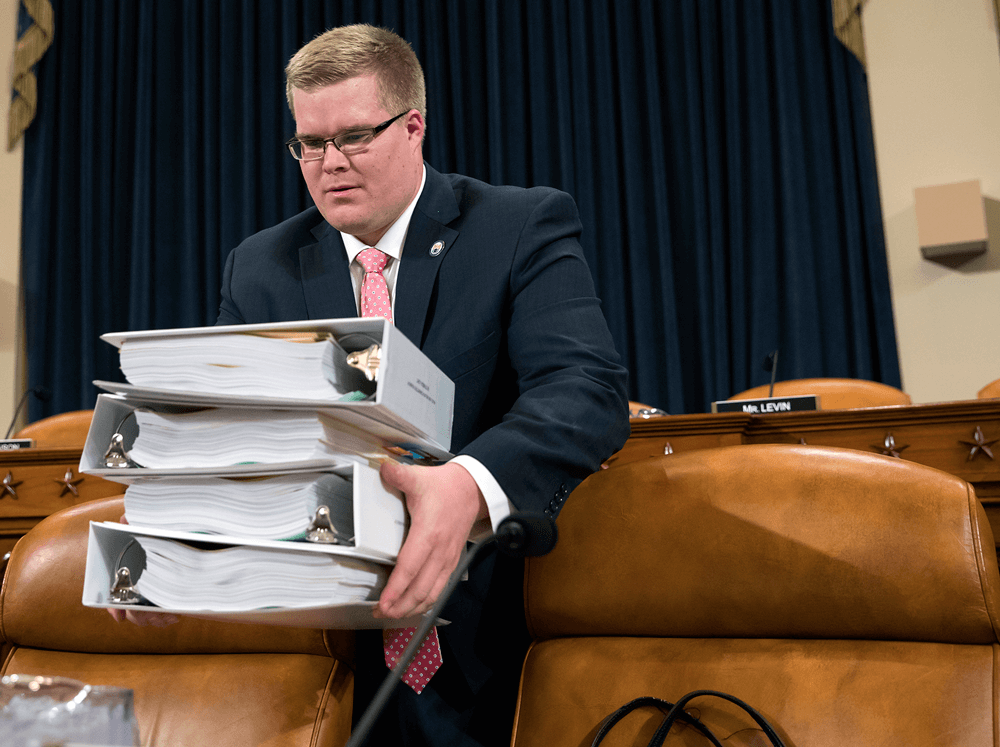Brad DeLong: Worthy reads on equitable growth, October 5–11, 2018
Worthy reads from Equitable Growth:
- I remember debating Glenn Hubbard about the inheritance tax a few years ago. He claimed that the cultural and educational transmission of wealth from him to his children was more important than inheritance, hence there should be no inheritance taxes. That argument did not make sense to me. And it now looks as though his initial claim that inheritance was less important was wrong. Read Elisabeth Jacobs and Liz Hipple, “Are Today’s Inequalities Limiting Tomorrow’s Opportunities?” They write: “An individual’s place on the economic distribution is supposed to reflect individual effort and talent, not parental resources and privilege. Yet this perspective ignores the mounting evidence of the myriad ways that poverty and economic inequality foreclose equality of opportunity.”
- I have never understood why the other justices on the U.S. Supreme Court do not differ with Justice Stephen Breyer on antitrust issues. They really ought to, but they do not. Read Howard Shelanski and Michael Kades, “Competitive Edge: Judge Kavanaugh-Would he increase the divide between the public and judicial debate over antitrust enforcement?” They write: “Over the past decade, the Supreme Court has … followed a path of reduced enforcement, reflected in decisions weakening prohibitions against vertical restraints.”
- Equitable Growth 2018 grantee Gabriel Zucman is getting a very welcome increasing share of global attention for his very important tax haven work. His is a research team very much worth supporting and expanding. Read Matt O’Brien, “Inequality is worse than we know. The super-rich really do avoid a lot of taxes,” in which The Washington Post columnist writes: “On the legal end of the spectrum … companies shift their profits to show up in low-tax jurisdictions. … According to UC Berkeley economist Gabriel Zucman and his co-researchers. … as much as 40 percent of all multinational profits and 50 percent of U.S. ones.”
- As Google chief economist and University of California, Berkeley emeritus professor Hal Varian said a decade ago, the right solution to the housing financial crisis was for everybody in the United States to default on their mortgages and move one house to the right. The policies pursued by the Obama administration wound up being very effective at rescuing banks and their shareholders, option holders, and executives, keeping them from experiencing financial harm. But those policies proved totally ineffective at helping homeowners in distress. Read Corey Husak, “How not to help distressed mortgage borrowers: Evidence from the Great Recession in the United States,” in which he writes: “The federal government has been criticized by many for failing to provide adequate assistance to U.S. homeowners who were financially devastated by the housing crisis and subsequent Great Recession and its aftermath in the late 2000s. New evidence suggests that even when assistance was given, it was poorly designed.”
- We do not have to have a society in which the most important economic decision you make in your life is your choice of parents. Read New York University School of Law’s Lily Batchelder—in Equitable Growth’s 2016 report “Delivering Equitable Growth: Strategies for the next administration”—who contributed this piece: “The “Silver Spoon” Tax: How to Strengthen Wealth Transfer Taxation.” She wrote: “30 percent of the correlation between parent and child incomes—and more than 50 percent of the correlation between the wealth of parents and the wealth of their children—is attributable to financial inheritances. This is more than the impact of IQ, personality, and schooling combined.”
Worthy reads not from Equitable Growth:
- Get your increased industrial concentration and market power here. There is something wrong with the press corps when a merger is spun as increasing efficiency first. There may be efficiencies. Those efficiencies are not why this merger is being pursued: Read Diane Bartz and Caroline Humer, “CVS, Aetna Win U.S. Approval for $69 Billion Merger,” in which they write: “Pharmacy chain CVS Health Corp (CVS.N) won U.S. antitrust approval for its $69 billion acquisition of health insurer Aetna Inc (AET.N), the Justice Department said on Wednesday.”
- This seems to me to be too strong: There is every reason to think that the financial crisis could have been handled in a way that built a successful firewall between Wall Street distress and unemployment. Read the (firewall accessible only) Financial Times’ Martin Wolf, “How To Avoid the Next Financial Crisis,” who writes: “proximate explanations for the huge shortfalls in output were collapses in investment … This weak investment must also help explain low rates of innovation, which is particularly visible in directly-hit countries. New technology is often embodied in new equipment.”
- This gets the essence of the Trump administration right. Read Jeffrey Frankel, “The New and Not Improved NAFTA,” in which he writes: “U.S. President Donald Trump has called the United States-Mexico-Canada Agreement, which succeeds NAFTA, ‘the single greatest agreement ever signed’. In reality, it is not as good as the Trans-Pacific Partnership, from which Trump withdrew the U.S. While this outcome is better than an end to free trade in North America, the USMCA is no improvement over the status quo. Of course, this is Trump’s modus operandi: threaten to do something catastrophic, so people are relieved when things get only a little bit worse.”
- Hal R. Varian in “Causal Inference in Economics and Marketing” writes: “This is an elementary introduction to causal inference in economics written for readers familiar with machine learning methods. The critical step in any causal analysis is estimating the counterfactual—a prediction of what would have happened in the absence of the treatment.”



